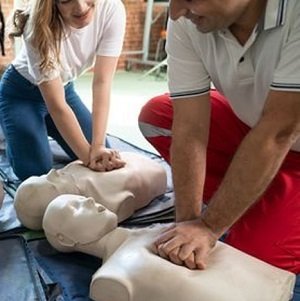A recent study published in the American Heart Association journal Circulation has revealed alarming disparities in the effectiveness of bystander CPR across different racial and gender groups. The research, which analyzed over 623,000 patient records, found that while bystander CPR generally improves survival rates, its benefits are significantly reduced for Black individuals and women.
The study showed that on average, those who received bystander CPR had a 28% higher chance of survival compared to those who did not. However, the outcomes varied dramatically by race and gender. White men who received bystander CPR were 41% more likely to survive than if they didn’t receive CPR. In stark contrast, Black women had only a 5% greater chance of survival with bystander CPR compared to without it.
Dr. Paul Chan, the lead author of the study, emphasized that the goal was not just to confirm that communities of color are less likely to receive CPR, but to investigate whether the benefits of CPR are equal across different groups. “It’s not just getting people to start CPR but doing it as effectively and as well in all groups of people,” Chan told CNN.
The study suggests several factors that could contribute to these disparities, including variability in dispatcher training and resources in Black communities, and low CPR training rates in communities of color. However, the authors note that further research is needed to fully understand why the association between bystander CPR and survival is weaker for Black individuals and women.
Jade Calvin, a critical care paramedic and CPR instructor, highlighted societal factors that might contribute to these disparities. She noted that people are often more hesitant to perform CPR on women due to concerns about modesty and a misconception that women are more fragile. “People are scared because they want to keep the woman’s modesty intact,” Calvin explained.
The study’s findings underscore the need for targeted interventions to address these racial and gender disparities in CPR effectiveness. The American Heart Association and the American Red Cross have intensified efforts to increase CPR training in historically underserved communities. Calvin stressed the importance of representation in training, noting that seeing diverse individuals in life-saving roles can inspire others to follow suit.
See “Survival rates far worse for Black women after bystander CPR, study finds” (August 15, 2024)



